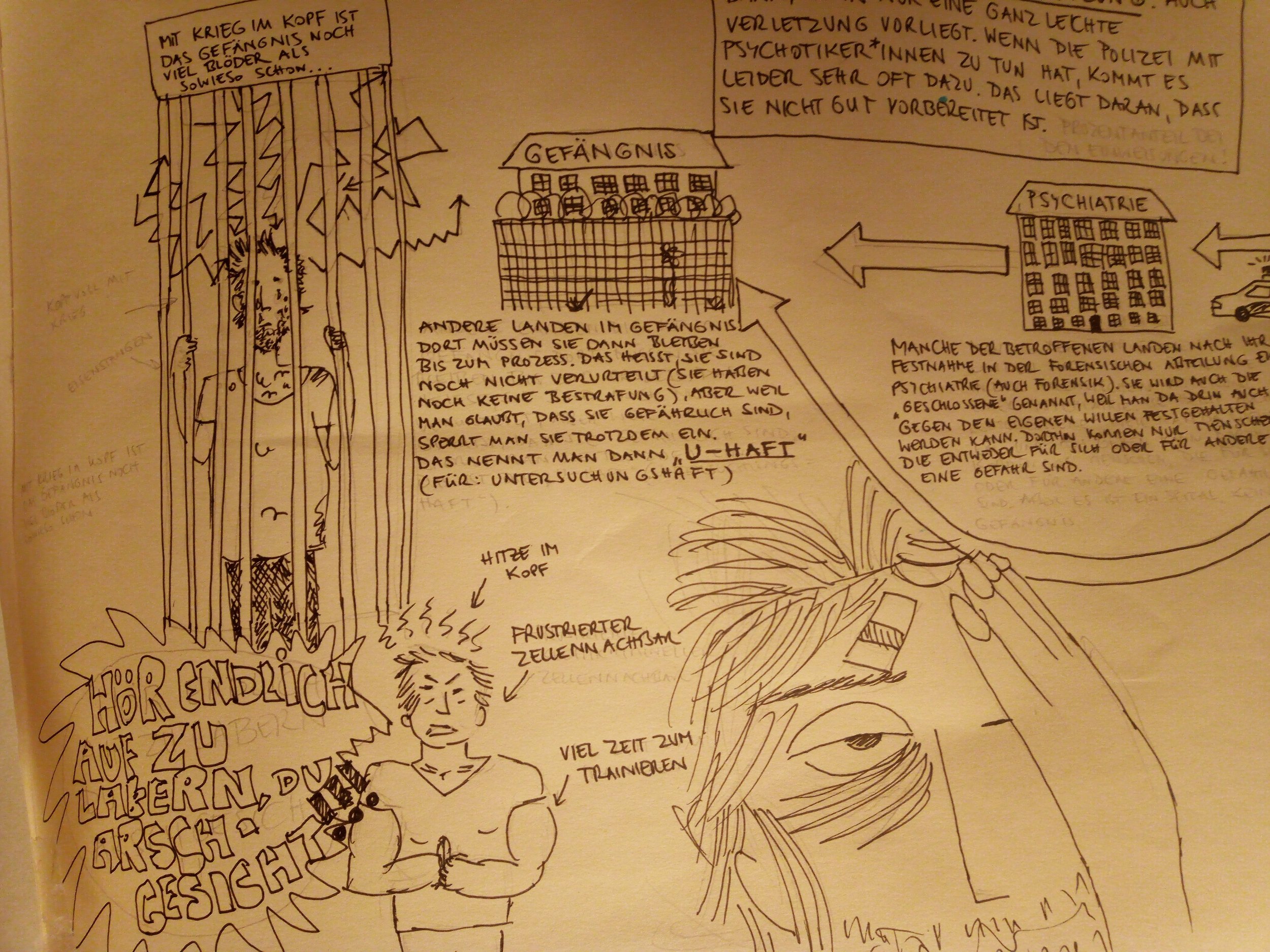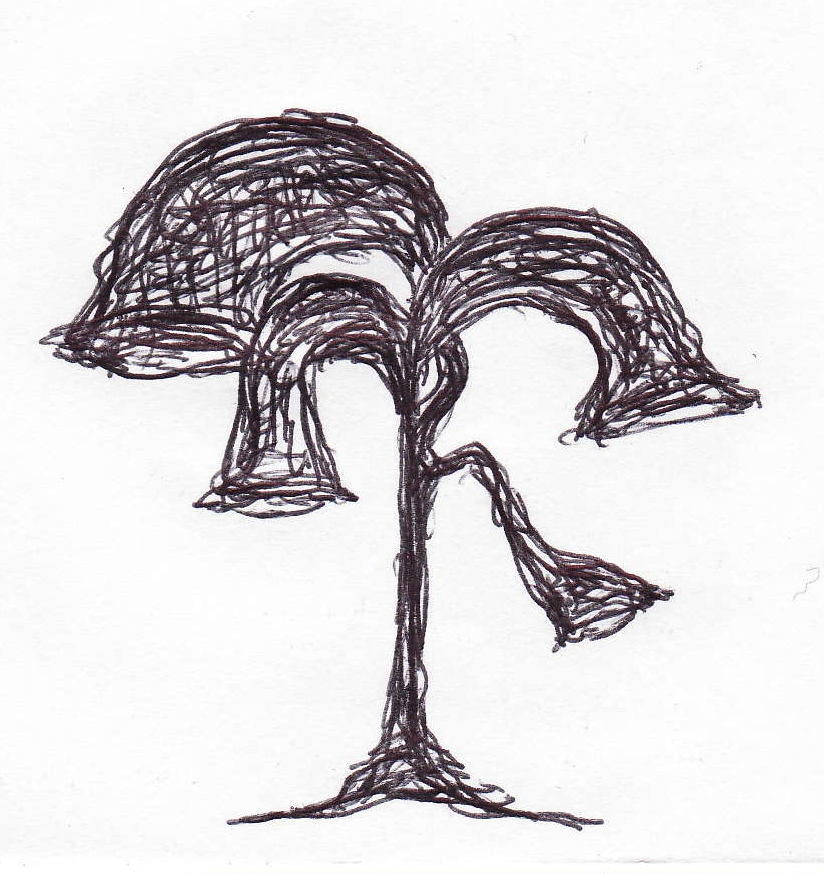“Die Scham ist schon eine Revolution... Scham ist eine Art Zorn, der in sich gekehrte. Und wenn eine ganze Nation sich wirklich schämte, so wäre sie der Löwe, der sich zum Sprunge in sich zurückzieht." (Marx to Ruge 1843, I/1, 557)
I read these lines mid of August ‘20 when the people of Afghanistan tried to flee the Taliban reaching out for their lives and their happiness. And I did feel the shame Marx wrote about very clearly.
When I was a kid, I had a hard time to understand how war works. I wondered why nobody ever had the idea that those who wanted to could fight somewhere in a desert, far away from civilians. Why would one instead let people throw bombs on houses and kill those who never chose to be part of war? It did not get to my mind really that this is exactly what war is about: Ruling over land, sea, and people. Young people, old people, innocent people, defenceless people. I did not understand there was someone interested to hold sway over a city, to exercise power over rivers and trees and, finally, the women and men and kids there. And that someone felt (s)he was legitimized to do so. I am not sure I will ever understand.
But one thing is certain: There are better ideas to end wars with than this playground for warriors I had in my mind. And I believe there is something about ideas, allthough they might seem useless and phantastic, which makes (wo)mankind a better one. And some of them might even make the world a better one; if ideas are lucky to find the right person(s) making them reality. That is why I invite you to have a look on mine, hoping they will find a good home.
(photo: This is my son’s idea how to become rich. Paint stuff with gold colour.)
-

Du Hure, du Philosophin
Der größte Fisch, der mir auf der Recherchereise für mein Buch über die Liebe ins Netz gegangen ist, ist die Renaissancephilosophin Tullia d’Aragona (1501-1556). Es ist eine ganz witzige, aber auch ziemlich traurige Geschichte, warum man sie heute lesen kann.
D’Aragona war nämlich Kurtisane, also eine Mischung aus Call-Girl, Unterhalterin, Hostesse, gebildeter Dame und Sozialarbeiterin – und hatte damit den denkbar schlechtesten Job, den man während der Gegenreformation in Italien haben konnte. Um den drohenden Schikanen zu entgehen, entschloss sie sich, ein Buch zu schreiben. Das sollte sie vor der akademischen Szene, die zugleich ihr Klientel war, als Intellektuelle ausweisen. Wahrscheinlich wollte sie ihre spießigen Mitbürger:innen ein bisschen ärgern. Denn sie schrieb ausgerechnet über die Liebe und das Liebemachen und sie nannte ihr Werk Dialogo dell’infinità d’amore: Dialog über die Unendlichkeit der Liebe. Es ist eine der spannendsten und realistischsten Annäherungen an das, was Liebe ist – und das, was sie nicht ist: der Besitzanspruch, den Männer auf Frauen zu haben vermeinen. Die Liebe, sagt d’Aragona, sei unendlich, weil man die Andere nie besitzen kann. Das gerade sei es, was Sex so schön macht.
Mir hat Tullia d’Aragona Mut gemacht. - Mut, sich gegen die Idee zu wehren, dass man sich Frauen untertänig machen kann, indem man ihnen vorwirft, Huren zu sein. Und Mut dafür, einen strengeren Begriff von Liebe zu haben. Denn der Grund, warum viele Menschen in Liebesangelegenheiten meinen, eifersüchtig sein zu dürfen, ist wohl der, dass Tullia D’Aragona bis zum heutigen Tag eine Fußnote der Philosophiegeschichte geblieben ist.
-

Borders Within Cosmopolis
“Die Grenze ist nicht eine räumliche Tatsache mit soziologischen Wirkungen, sondern eine soziologische Tatsache, die sich räumlich formt.” (Simmel, Soziologie, 1992: 697)
When I came to Jerusalem for the first time, I was stunned by the mannifold boundaries in the city, be it religious, cultural, political, financial or historical ones. As a stranger, I could only notice them through the way the Jerusalemites made them visible to me through their behaviour. Once, I sat down at some place just in the center of the shuk, and wondered why those men starred at me in utter bewilderment. Later I found out it was a mosque.
After several weeks, I would know whom I was going to meet on certain paths (like Orthodox who use a special path to the Wailing Wall), where to pull down my sleeves, where to be silent, and where I was not permitted to go to - as a woman, as a stranger, as someone not sharing the same beliefs. It took me quite a while to find out what facets of my ‘identity’ made me not unwelcome to certain places at certain times. And it cost me a bunch of energy too. Because for me, any boundary I am confronted with is a boundary limiting my personal freedom to experience the world. When I found out that my longlasting plan to see the men telling fairy tales in Damascus would die because of the war, I couldn’t resist my anger.
I think one should try to make some of the boundaries of cities like Jerusalem visible. My idea is to use laser lights at the height of the ancle in public squares, revealing its existence, its target group and showing it interference to other boundaries. A parallel exhibition could tell their stories. (photo: Miriam Metze)
-

Comic zum Maßnahmenvollzug
Eine psychische Krankheit stellt eine enorme Überforderung dar. Wenn ein Prozess ins Haus steht und der Maßnahmenvollzug droht, geraten Betroffene und Angehörige an ihre Grenzen. Dann gilt es, alle Ressourcen zu mobilisieren und an einem Strang zu ziehen - aber an welchem?? Die Prozesse, die nun ablaufen - Untersuchungshaft, Begutachtung, Prozess usw. - sind nicht nur belastend, sondern auch kompliziert. Noch komplizierter wird es, wenn es an ausreichenden Deutschkenntnissen mangelt, eine grundsätzliche Aufklärung über psychische Krankheit nicht gegeben ist, das nötige Kleingeld für die Anwaltskosten fehlt oder man vor lauter Hölle als Angehörige/r nicht mehr klar denken kann und nicht weiß, wo man sich Hilfe holen kann.
Deswegen die Idee, ein Comic zu machen - anschaulich und in einfacher Sprache, und in möglichst vielen verschiedenen. Damit Menschen mit Flucht- und Migrationshintergrund auch eine Chance haben. (photo: private)
-

Lecture about the Sea
In 2015, many philosophers tried to get what the refugee crisis in Europe was about. To my view, one omitted seeing the whole thing by leaving aside the very role the sea plays in this sad game, being some sort of a naturalized demarcation line, unable to cover up the deliberate violence inherent to the political processes.
To be sure, it’s not a tragedy to drown in the Mediterranean these years. It is important to understand out philosophical notion of the sea in order to see why people would have to die there … in the waves, just right in front of the coast of the island where Pythagoras and his crazy friends lived. We still have to understand why things changed so radically since then.
Greek philosophy is unthinkable without the sea serving as a communicational space between i.e. Egypt and Greece. - Thales for example travelled to Egypt to be taught how to be a scientist. If Occidental thinking (and thus: European political traditions) could not exist without this interaction between science cultures provided by the sea - what does it mean to have so many people dying there now? (photo: private)
-

The Phonographer
My idea is to use modern audio equipment to install “phonographer trees” in city squares, providing live sounds from other cities and villages from allover the world. One could stop by and listen to the sounds of Cairo, New York or some Peruan village. Or talk to Sydney, telling something about the weather in Austria. (As equivalence there must be microphone bushes too.) I picture there could be a reciprocal connection too (where strangers could talk without seeing each other), but I figure this to be a step to take later on in the project. Similarly, I imagine it was very beautiful to have huge video wall conferences, so that people from two places could (silently) watch others at the other side of the world watching them. (photo: private)
-

Dance Piece "A Mom"
Being a mom means to be confronted with innate ideas in oneself and society what it is like to be a mom. They are rarely brought into question. I personally had - and have - to fight hard finding my own way to be mom.
I got this idea when I recently played with my kid. One should do a dance piece portraying the relation between a mom and her child, showing them scrapping, kissing, yelling, laughing, singing, being angry, sad, pissed, happy, roaring like dragons, sharing ideas and phantasies with each other and a meal.
I would very much want to see this dance, I guess it could help fighting fixed ideas we got about moms by making them fluid and mannifold. (And yes, moms do forget about dinner, sometimes.) (photo: private)
